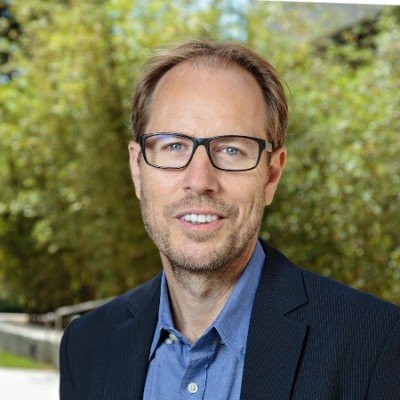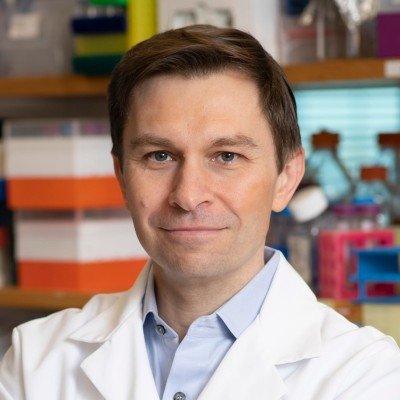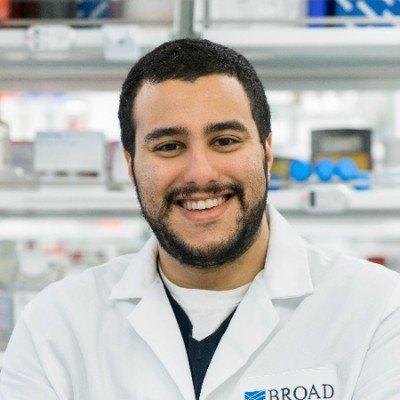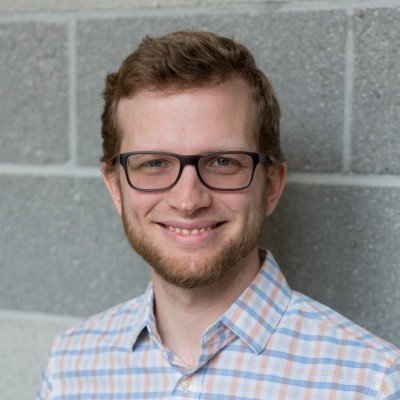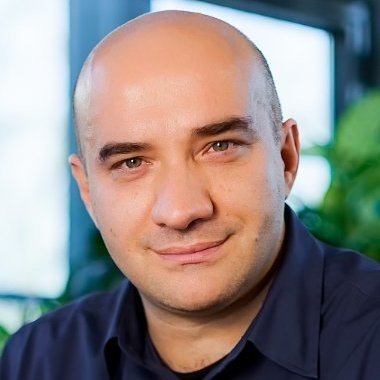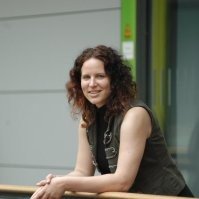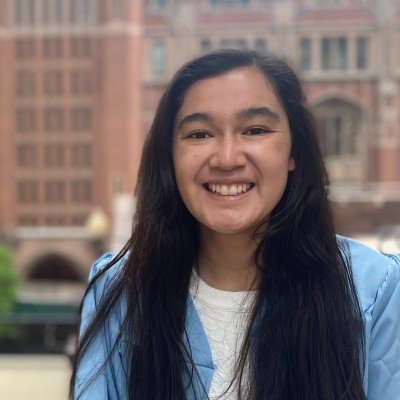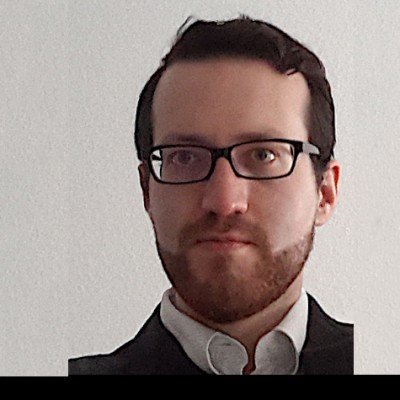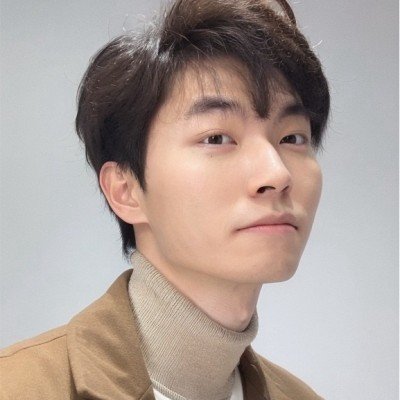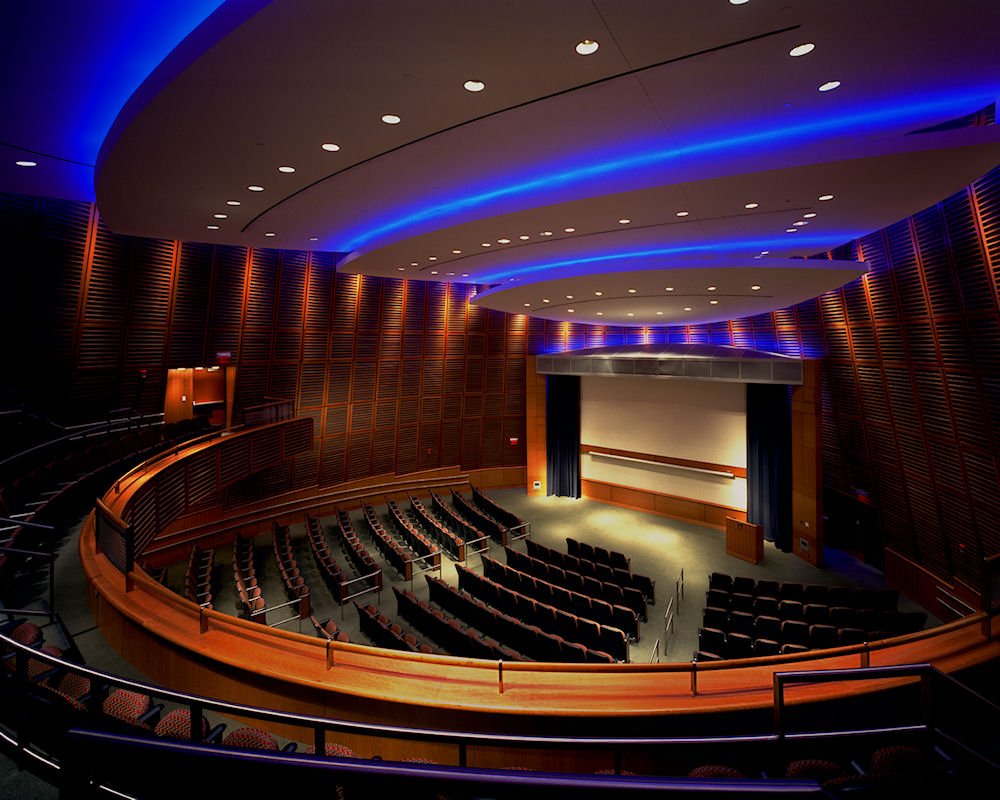
2024 Biomarkers of Aging Conference
Joseph B. Martin Conference Center at Harvard Medical School
Nov 1 - 2, 2024
Program Highlights
Our expanded 2-day program builds on last year’s inaugural 2023 Symposium, elevating the Biomarkers of Aging Conference to new heights, enhancing both its scale and impact on the field of aging biomarkers. Our program ensures a holistic view of the biomarkers of aging research and development landscape, bridging critical gaps and driving forward meaningful advancements.
Friday, November 1 - Cutting-Edge Basic Science
Dedicated to advancing groundbreaking academic science, our Day I programming offers short talks, panels, and poster presentations that showcase the latest findings in basic biomarkers of aging research from leading academic laboratories around the world. To encourage open communication and the sharing of unpublished research, we prohibit the recording of sessions, including talks, posters, and discussions, in any format. This policy helps maintain a confidential and collaborative environment for scientific exchange.
Morning Session 1:
Omics and Multi-Omics Biomarkers of Aging
Omics biomarkers of aging are vital for understanding the biological processes of aging. These biomarkers, from genomics, proteomics, metabolomics, and transcriptomics, offer detailed insights into molecular changes with age. Analyzing these patterns helps identify pathways and signatures that indicate aging rates, healthspan, and disease risk. This comprehensive approach supports the development of targeted therapies for healthy aging and informs personalized medicine based on individual molecular profiles.
Moderated by Vadim Gladyshev
Vadim Gladyshev, PhD
Professor of Medicine,
Harvard Medical School
9:00 a.m. - 9:10 a.m.
Welcome, Opening Remarks, and Moderation
Proteomic Profiles of Aging and Neurodegeneration
9:10 a.m. - 9:25 a.m.
Tony Wyss-Coray, PhD
Prof of Neurology and Neurological Sciences,
Stanford University
New Advances in Epigenetic Clocks
and DNA Methylation Biomarkers
9:25 a.m. - 9:40 a.m.
Steve Horvath, PhD
Principal Investigator,
Altos Labs Cambridge Institute of Science
9:40 a.m. - 9:55 a.m.
Mahdi Moqri, PhD, MBA
Faculty
Harvard Medical School
Validation of Biomarkers of Aging
9:55 a.m. - 10:25 a.m.
Coffee Break ☕
Morning Session II:
Molecular, Digital, and Physiological Biomarkers of Aging
Molecular biomarkers reveal cellular changes at the genetic and protein levels, digital biomarkers use data from digital devices to monitor health indicators, and physiological biomarkers assess bodily functions related to aging. Together, these biomarkers provide a comprehensive picture of aging, helping identify risk factors, predict health outcomes, and develop targeted interventions. This integrative approach supports the creation of personalized strategies for healthy aging based on an individual's unique biological, digital, and physiological profile.
Moderated by Jessica Lasky-Su
10:25 a.m. - 10:30 a.m.
Jessica Lasky-Su, PhD
Associate Professor in Medicine, Harvard Medical School and Brigham & Women’s Hospital
Morning Session II Intro and Moderation
10:30 a.m. - 10:45 a.m.
David Sinclair, PhD
Professor, Department of Genetics – Blavatnik Institute, Harvard University
The Information Theory of Aging
10:45 a.m. - 11:00 a.m.
Eric Verdin, MD
President & CEO
Buck Institute
Measuring Human Immune Aging
Leveraging Biomarkers of Aging to Identify Solutions to Clinical Challenges
11:00 a.m. - 11:15 a.m.
Jesse Poganik, PhD
Investigator, Brigham & Women's Hospital, Instructor in Medicine, Harvard Medical School
11:15 a.m. - 12:00 p.m.
Poster Flash Talks
12:00 p.m. - 12:30 p.m.
Group Photo @ HMS Quad
Lunch and Poster Sessions
Enjoy a light lunch and our Day I Poster Sessions
12:30 p.m. - 1:30 p.m.
Lunch Break
1:30 p.m. - 2:30 p.m.
Poster Sessions
Afternoon Session 1:
Systems Aging
Systems aging biomarkers are essential for understanding how aging affects the body's integrated systems, such as the immune, cardiovascular, and nervous systems. By examining these biomarkers, researchers can identify patterns and pathways that indicate systemic aging processes and potential dysfunctions. This holistic approach helps predict age-related diseases and guides the development of targeted interventions. Integrating data from various systems enables a comprehensive strategy for promoting healthy aging and tailoring personalized treatments based on an individual's unique systemic profile.
Moderated by Andrea Maier
2:30 p.m. - 2:35 p.m.
Andrea Maier, MD, PhD
Professor,
Yong Loo Lin School of Medicine
Afternoon Session I - Intro & Moderation
George Church, PhD
Robert Winthrop Professor of Genetics,
Harvard Medical School
Aiming for Diseases of Aging vs. Longevity vs. Biomarkers vs. Healthspan
2:35 p.m. - 2:50 p.m.
2:50 p.m. - 3:05 p.m.
Björn Schumacher, PhD
PI and Chair for Genome Stability in Aging and Disease, University of Cologne
Aging By The Clock Yet Without a Program
Single-Cell Epigenomics And The Regulatory Controls of Aging
3:05 p.m. - 3:20 p.m.
Jason Bueonrostro, PhD
Associate Professor of Stem Cell and Regenerative Biology, Harvard Medical School
3:20 p.m. - 3:35 p.m.
Omar Abudayyeh, PhD
Investigator,
Brigham & Women’s Hospital
Engineering Longevity Therapies
Jonathan Gootenberg, PhD
Investigator,
Beth Israel Deaconess Medical Center
Raymond Mak, MD
Director of Clinical Innovation, Director of Patient Safety/Quality, Brigham and Women's Hospital
Clinical Application of Artificial Intelligence to Quantify Biological Age from Face Photographs
3:35 p.m. - 3:50 p.m.
3:50 p.m. - 4:20 p.m.
Coffee Break ☕
Afternoon Session II: Longitudinal & Clinical Biomarkers of Aging
Longitudinal and clinical biomarkers of aging are crucial for tracking changes in aging over time and across different health conditions. Longitudinal biomarkers provide insights into the progression of aging processes by monitoring individuals over extended periods. Clinical biomarkers, derived from medical assessments, help identify age-related diseases and conditions. Together, these biomarkers allow researchers to predict health outcomes, understand the dynamics of aging, and develop targeted interventions, ultimately guiding personalized medicine and strategies to promote healthy aging.
Moderated by Lewis Lipsitz
4:20 p.m. - 4:25 p.m.
Lewis Lipsitz, MD
Professor of Medicine,
Harvard Medical School
Afternoon Session II - Intro & Moderation
Michael Snyder, PhD
Principal Investigator,
Stanford Medical School
Deep Profiling Reveals Ageotypes and Periods of Aging
4:25 p.m. - 4:40 p.m.
Luigi Ferrucci, PhD
Scientific Director,
National Institute on Aging
Biomarkers of Aging: Beyond Traditional -Omics
4:40 p.m. - 4:55 p.m.
General Principles of Biomarkers of Aging
- a Longitudinal Perspective
4:55 p.m. - 5:10 p.m.
Sara Hägg, PhD
Associate Professor in Molecular Epidemiology, Karolinska Institutet
Proteomic and Epigenetic Predictors of Complex Traits and Incident Disease Outcomes
5:10 p.m. - 5:25 p.m.
Riccardo Marioni, PhD
Head of Translational Epidemiology,
University of Edinburgh
Hevolution Alliance for Aging Biomarkers (HAAB): A Road Map for Future Clinical Applications
5:25 p.m. - 5:40 p.m.
Viviana Perez, PhD
VP of Geroscience
Hevolution Foundation
5:40 p.m. - 5:45 p.m.
Day I Closing Remarks
Saturday, November 2
Day II focuses on the translational, clinical, and regulatory dimensions of the field, fostering discussions and collaboration between scientists, clinicians, regulators, and entrepreneurs.
Morning Session I: Economic, Industry, and Regulatory Roadmaps
We will examine market trends, investment strategies, and industrial growth alongside discussions on navigating the regulatory landscape. Attendees will gain insights into the challenges and opportunities involved in bringing new aging-related technologies and treatments to market, with a focus on fostering innovation and compliance. This comprehensive approach aims to equip participants with the tools and knowledge needed to drive advancements in the longevity sector
Moderated by Mahdi Moqri
Mahdi Moqri, PhD, MBA
Faculty
Harvard Medical School
Morning Session I:
Welcome & Recap of Day1
9:00 a.m. - 9:05 a.m.
Identifying Surrogates of Healthspan and Endpoints for Aging
9:05 a.m. - 9:20 a.m.
Andrew Brack, PhD
Program Director,
ARPA-H
Refocusing ageing biomarkers through the lens of resilience
9:20 a.m. - 9:35 a.m.
Lynne Cox, PhD
Program Director, Dynamic Resilience Program, Wellcome Leap
Cracking the Code of Aging: Multi-Omics and AI for Human Longevity
9:35 a.m. - 9:50 a.m.
John Earls, PhD
Senior AI Scientist,
Buck Institute
9:50 a.m. - 10:05 a.m.
Eric Morgen, MD
Co-Founder and COO
BioAge
Learnings From The FDA for Regulatory Approval
10:05 a.m. - 10:20 a.m.
David Furman, PhD
Director of the Stanford 1,000 Immunomes Project, Stanford School of Medicine
Immune Biomarkers of Aging
10:20 a.m. - 10:50 a.m.
Coffee Break ☕
Morning Session II:
Novel Biomarkers of Aging and their Clinical Translation
This session will explore cutting-edge research identifying unique biomarkers for different organs, highlighting their role in understanding organ-specific aging processes. Discussions will focus on the clinical application of these biomarkers, from early detection and monitoring of age-related diseases to developing targeted therapies. Attendees will gain insights into how these novel biomarkers can transform clinical practices and enhance personalized medicine in aging.
Moderated by Vittorio Sebastiano
10:50 a.m. - 10:50 a.m.
Vittorio Sebastiano, PhD
Professor,
Stanford Medical School
Morning Session II - Intro & Moderation
IgG Glycans are Predictive Biomarkers and Modifiable Functional Effectors of Age-related Diseases
10:50 a.m. - 11:00 a.m.
Gordan Lauc, PhD
Professor of Biochemistry and Molecular Biology,
University of Zagreb
Christin Glorioso, MD, PhD
Founder and CEO,
NeuroAge
Reversing Brain Aging to Prevent Dementia
11:00 a.m. - 11:10 a.m.
11:10 a.m. - 11:20 a.m.
Alexandra Stolzing, PhD
Professor of Biogerontological Engineering, Loughborough University
Volatiles: Biomarkers of Aging
Methylation-based Organ-Level agEing (MOLE) Clock and Its Application in Developing Organ-specific Anti-aging Solutions
11:20 a.m. - 11:30 a.m.
Gavin Zhou, PhD
Chief Technology Officer
Regenerative Bio
Highly Sensitive and Multiplexed Profiling of the Plasma Proteome to Identify Biomarker Signatures Associated with Aging
11:30 a.m. - 11:40 a.m.
Xiao-Jun Ma, PhD
Alamar Biosciences
Clinical Translation:
Short Talk & Moderation
11:40 a.m. - 11:50 a.m.
Chiara Herzog, PhD
Honorary Research Fellow
University College London
Matchmaking: Biomarkers of Aging and geroprotective interventions
11:50 a.m. - 12:00 p.m.
Andrea Maier, MD, PhD
Professor,
Yong Loo Lin School of Medicine
The Human Exposome: Going Beyond the Biology of Aging to Extend Human Healthspan, Resilience and Flourishing
12:00 p.m. - 12:10 p.m.
Tina Woods, MBA
Founder & CEO,
Collider Health
Patient Biomarker Visualization
12:10 p.m. - 12:20 p.m.
David Gobel
Founder,
Methuselah Foundation,
Lunch and Poster Sessions, & Poster Flash Talks
Enjoy a light lunch and our Day 2 Poster Sessions
12:20 p.m. - 1:00 p.m.
Poster Flash Talks
1:00 p.m. - 2:00 p.m.
Lunch Break
2:00 p.m. - 2:55 p.m.
Poster Sessions
Afternoon Session I: Clinical Trials and Open Innovation
This session will cover strategies for designing effective clinical trials that accelerate the translation of aging biomarkers into practical applications. We will also discuss the importance of open innovation, emphasizing collaborative efforts across academia, industry, and regulatory bodies to foster innovation and expedite the development of aging-related therapies. Attendees will learn about best practices and emerging trends in clinical trial design and innovation in the longevity space.
Moderated by Jamie Justice
XPRIZE Healthspan: Frameworks and Biomarkers of Aging for Clinical Trials
2:55 p.m. - 3:10 p.m.
Jamie Justice, PhD
Executive Vice President
XPRIZE Healthspan
3:10 p.m. - 3:30 p.m.
John Tsang, PhD
Professor of Immunobiology and Biomedical Engineering, Yale University
Measuring Human Immune Health
Are DNAm Aging Biomarkers Ready for Clinical Trials? Progress Made and Challenges Ahead
3:30 p.m. - 3:45 p.m.
Raghav Sehgal, MSc
PhD candidate at Yale University,
Albert Higgins-Chen Lab
3:45 p.m. - 4:00 p.m.
Nir Barzilai, MD
Director,
Einstein Institute
Economic Proteomic Panels
Austin Argenitieri, PhD
Research Fellow, Analytic and Translational Genetics Unit, Massachusetts General Hospital
Harnessing Proteomic Aging Signatures as a Tool for Preventative Medicine
4:00 p.m. - 4:15 p.m.
Coffee Break & Top Poster Presenters
4:15 p.m. - 4:45 p.m.
Coffee Break ☕
Transcriptomic Hallmarks Of Mortality Reveal Universal and Specific Mechanisms of Aging, Chronic Disease, and Rejuvenation
4:45 p.m. - 4:55 p.m.
Alexander Tyshkovskiy, PhD
Instructor in Medicine,
Harvard Medical School
4:55 p.m. - 5:05 p.m.
Jessica Kasamoto, MSc
PhD Candidate
Yale University
Multiverse of Clock Madness: Finding The One in One Thousand
Afternoon Session II: Open Science
Open science accelerates discoveries and fosters collaboration in the field of aging. We will showcase initiatives like the Biolearn program and The Biomarkers of Aging Challenge, which encourage sharing data and knowledge to drive innovation. Attendees will also hear from the winners of Challenge Phase I and Phase II, who exemplify the spirit of open science by contributing valuable insights and solutions to the community. Join us to celebrate these achievements and learn how open science can propel the field forward
Moderated by Dane Gobel
Open Science:
Biomarkers of Aging Challenge
5:30 p.m. - 5:35 p.m.
Dane Gobel
Co-Founder,
Methuselah Foundation
Biomarkers of Aging Challenge:
Phase I Winner: Chronological Age
Short Talk
5:35 p.m. - 5:40 p.m.
Julian Reinhard
Machine Learning Scientist in Bioinformatics,
Evotec
Biomarkers of Aging Challenge:
Phase II Winner: Mortality
Short Talk
5:40 p.m. - 5:45 p.m.
Federated Learning with Biolearn: Roadmap, Bottlenecks, Implementation
5:45 p.m. - 6:00 p.m.
Seth Paulson
Senior Software Developer,
Methuselah Foundation
Kejun Albert Ying, MSc
PhD Candidate,
Harvard University
Concluding Remarks
5:55 p.m. - 6:00 p.m.
After years of dedicated community effort, anti-aging treatments are on the verge of becoming commercially available.
However, there is still a pressing need for standardized, clinically validated tools to accurately measure the aging process and quantitatively evaluate the effects of healthspan- and lifespan-extending interventions in humans.
As the field continues to expand, establishing these standards is essential for advancing our understanding and ensuring the success of future innovations.


